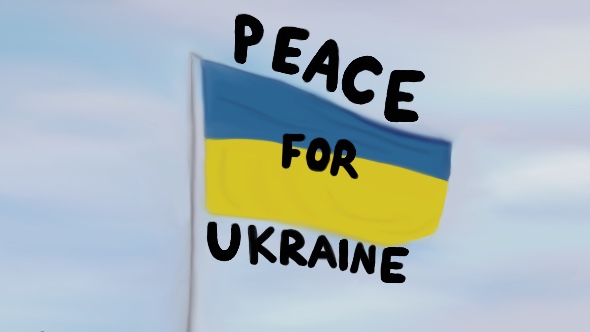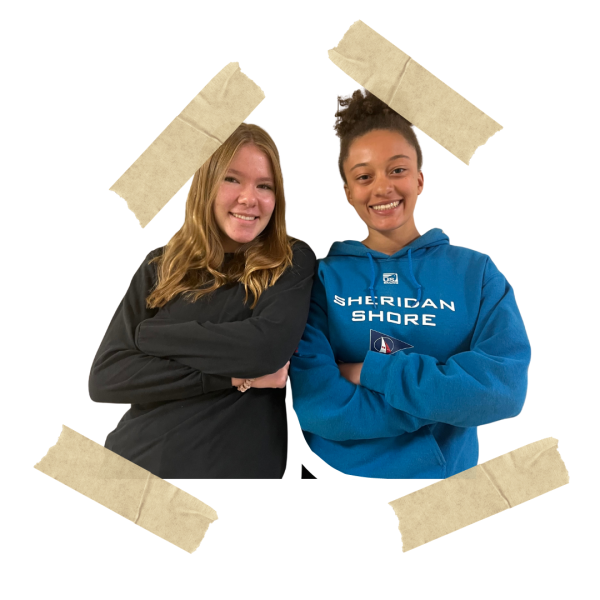Opinion | Inclusivity is key when it comes to addressing current events in classrooms

October 14, 2022
When Russia began its invasion of the independent nation of Ukraine under the guise of rightful reunification, the Western world held its breath and waited for what was advertised as an inevitability. However, a swift Russian victory never came, and the war rages on for what has now surpassed six months. There are several differing stances on the Ukraine conflict in the U.S., namely revolving around our country’s involvement, or lack thereof. Between the prevalence of such a devastating war and America’s long standing tensions with Russia, it’s no wonder that there has been such an outpouring of support for Ukraine, as there absolutely should be. However, the heavy discussion of the war in ETHS classrooms begs the question, how do teachers choose what conflicts to address in their classrooms? And, more importantly, how does the infiltration of whiteness within education, and the United States’ role in these conflicts, impact the level of attention paid to them?
Particularly towards the end of last year, teachers felt that the Ukrainian conflict was an issue that they felt morally obligated to address with their classes. Almost all of my teachers acknowledged that it was happening and gave students a space to express any of their feelings regarding the conflict, which was highly appreciated (Simone Jacot-Bell). While this is inarguably important to address, as it affects many ETHS students in a variety of ways, it made me question how teachers go about deciding what current events should be included in their curriculum. For instance, Ethiopia is dealing with a violent and deadly conflict between civilians and the national government within its northern region of Tigray, the long-standing conflict between Israel and Palestine is killing off civilians everyday, and Afghanistan is still suffering from the repercussions of the Taliban takeover. These are just a few examples out of the many atrocities that are occurring around the world, yet there is minimal discussion about these conflicts within a classroom setting. American classroom discussions about current events often center around whiteness, making it important to be mindful of the topics that are addressed in class. There must be a collective understanding that addressing Mahsa Amini’s murder in Iran is just as important as discussing the Ukrainian crisis. It is not effective to simply address the issues that pertain to U.S. allies or only talk about issues within predominantly white countries such as Ukraine. ETHS is a school full of students and staff from all different backgrounds, which is arguably what makes our school such an outstanding community. With that being said, we must keep our range of identities in mind when deciding what is important to discuss in class, so that all students feel seen within their classroom environments, no matter their background.
Michael Pond, Civics and AP United States History teacher at ETHS, finds that it is crucial to include conversations about current events within his curriculum in order for students to better understand the history.
“For me it’s not a question of [if I] should be teaching current events at the expense of whatever the standard curriculum is…”, says Pond. “It is how could we possibly, as human beings teaching in the social sciences, not bring the present day and the things that are relevant to our lives into the classroom.”
While it may be essential, holding class-wide conversations about current events is not always so simple. According to Pond, there are several factors that need to be considered when approaching these conversations. These are the pedagogical questions that he considers within his classroom:
“How relevant is this to my students now? How many of my students have heard about this, and what are they hearing? How relevant or important is this to the history that we have been studying? How relevant or important is this current event to building a better community/world/country?” asks Pond.
It is essential to weigh the different factors of a class community before deciding what current events should/should not be addressed in class. It is important to note that there is no clear cut or flawless formula to choose conversation topics; it should be based on the individual needs of the students within the community.
Teachers must think critically about what message they are sending to their students when they neglect to cover events that do not affect those who are born in positions of power due to their whiteness, geographical location, or other factors. Educators cannot begin to address this disparity if they are not discussing current events at all in their classrooms. There is no denying the time and effort that goes into crafting the curriculums for classes, especially at ETHS. However, there are immeasurable benefits to balancing laid out plans with current events. Our school advertises itself as a place that prepares its students to go out into the real world, and current events play a primary role in the world we will be entering so imminently. While history is the foundation of any modern conflict, I (Stella Israelite) am confident that there is untapped value in connecting classroom lessons to broader world issues, which would make these teachings not only more pertinent, but more personal. By highlighting the value of what we are being taught through a lens where it is actually applicable and relevant, teachers vastly improve their students’ engagement with and understanding of the content.
In an age where world news is available at the click of a button, our education system falls behind the curve. As the premise of ‘preparing students for adulthood’ grows to buzz-word levels of use, our school does not make an effort to live up to the expectation it sets for discussion and implementation of current events in the classroom. A truly well-rounded student who is ready to contribute positively to society is one who has been taught the importance of de-centering wealth, whiteness, and the west within their studies. We need an education that prioritizes these lessons in the context of the world as we know it today, not just decades ago.



















